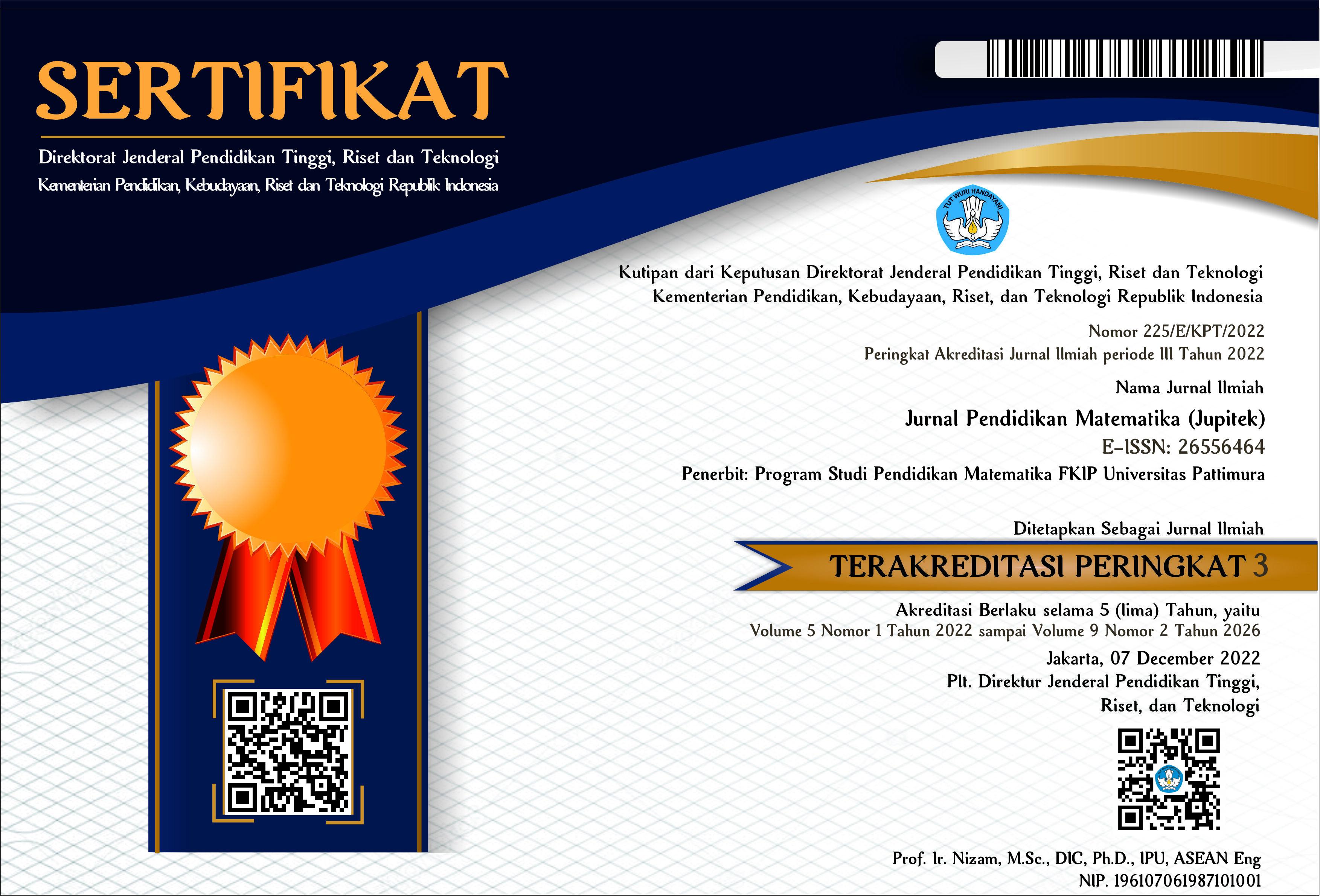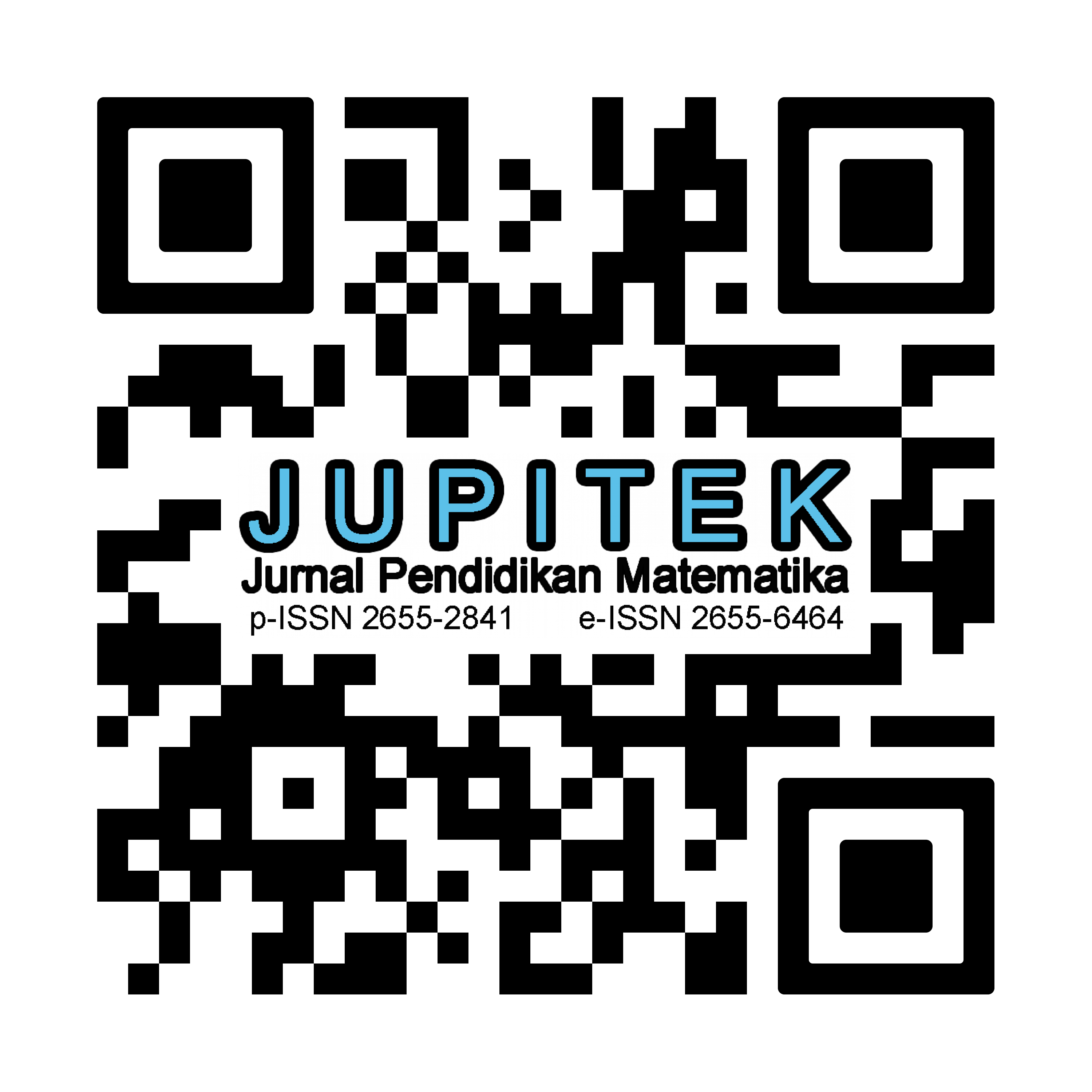PENERAPAN MODEL PEMBELAJARAN GROUP INVESTIGATION DALAM MENINGKATKAN HASIL BELAJAR MATEMATIKA SISWA
Abstract
This research discusses several problems found in the field, studying the learning process that is still dominated by the teacher, avoiding student participation in active learning activities, increasing student motivation in learning, and increasing collaboration between students. This research was conducted in one of the State Junior High Schools located in Makassar City, Indonesia in the academic year 2017/2018 which aims to improve student learning outcomes through the application of investigative group learning models. The research subjects were students of class VIII with 31 students. This class action research consists of 2 cycles, where each cycle consists of 3 meetings and 1 cycle test. Information related to student activities is collected using observation sheets and information related to student abilities is collected using tests given at the end of the cycle. Obtaining a score for cycle 1 is 70.48 with a completeness level of 70.79% and a score for cycle 2 is 76.32 with a completeness level of 87.1%. After applying learning with the investigation stage the group showed an increase in activity and the ability of students in the second cycle that was supported had reached classical completeness by 75%
Downloads
References
Hamidi. (2007). Metode Penelitian dan Komunikasi. Malang: UPT Universitas Muhammadiyah Malang.
Ayuwanti, I.(2016). Meningkatkan Aktivitas dan Hasil Belajar Matematika Menggunakan Model Pembelajaran Kooperatif Tipe Group Investigation di SMK Tuma'ninah Yasin Metro, Jurnal SAP 1(2).
Isjoni. (2011). Pembelajaran Kooperatif Meningkatkan Kecerdasan Komunikasi Antar Peserta Didik. Yogyakarta: Pustaka Pelajar.
Lanuihsan,dkk. (2015). Peningkatan Prestasi Belajar dengan Menggunakan Model Pembelajaran Group Investigation (GI) pada Mata Pelajaran Kompetensi Kejuruan Kelas X SMK Negeri 3 Takalar. Jurnal Pendidikan Teknologi Pertanian, 1(1) 56–62.
Natsir, I. (2019). Pengaruh Intelegensi Interpersonal terhadap Intelegensi Emosional dan Kaitannya dengan Hasil Belajar Matematika. Musamus Jurnal of Mathematics Education, 2(1)50-58.
Depdiknas. (2006). Peraturan Menteri Pendidikan Nasional No. 22 Tahun 2006 tentang Standar Isi.Jakarta: Depdiknas.
Slavin, R. (2011). Cooperative Learning : Teori, Riset dan Praktik. Bandung: Nusa Media.
Suriati, E. (2018). Penerapan Model Pembelajaran Kooperatif Group Investigation (GI) untuk Meningkatkan Hasil Belajar Matematika Siswa pada Materi Trigonometri di Kelas X2 SMA Negeri 4 Wira Bangsa Meulaboh. Jurnal Ilmiah Pendidikan Matematika, 5(2) 98-108.
Wanabuliandari, S. (2016). Peningkatan Disposisi Matematis dengan pengembangan Perangkat Pembelajaran Matematika dengan Model Thinking Aloud Pairs Problem Solving (TAPPS) berbasis Multimedia. Refleksi Edukatika, 6(2),138-144
Wiriaatmadja, R. (2012). Metode Penelitian Tindakan Kelas. Bandung: PT Remaja Rosdakarya.
Copyright (c) 2020 Irmawaty Natsir

This work is licensed under a Creative Commons Attribution-NonCommercial-ShareAlike 4.0 International License.
License and Copyright Agreement
By submitting a manuscript to Jurnal Pendidikan Matematika (JUPITEK), the author(s) certify and agree to the following terms:
- Originality and Authority: The submitting author is authorized by all co-authors to enter into this agreement. The manuscript describes original work that has not been published previously in a peer-reviewed journal, nor is it under consideration for publication elsewhere.
- Approval: Its publication has been approved by all author(s) and by the responsible authorities of the institutions where the work was carried out.
- Rights: The authors secure the right to reproduce any material that has already been published or copyrighted elsewhere.
- Licensing and Copyright: Authors retain the copyright to their work.
- License Grant: The authors grant Jurnal Pendidikan Matematika (JUPITEK) the right of first publication, with the work simultaneously licensed under the Creative Commons Attribution-NonCommercial-ShareAlike 4.0 International (CC BY-NC-SA 4.0).
- Self-Archiving: Authors are permitted and encouraged to deposit the published version of their article in institutional repositories, on their personal websites, and other academic platforms, with proper acknowledgment of its initial publication in Jurnal Pendidikan Matematika (JUPITEK).






.png)


